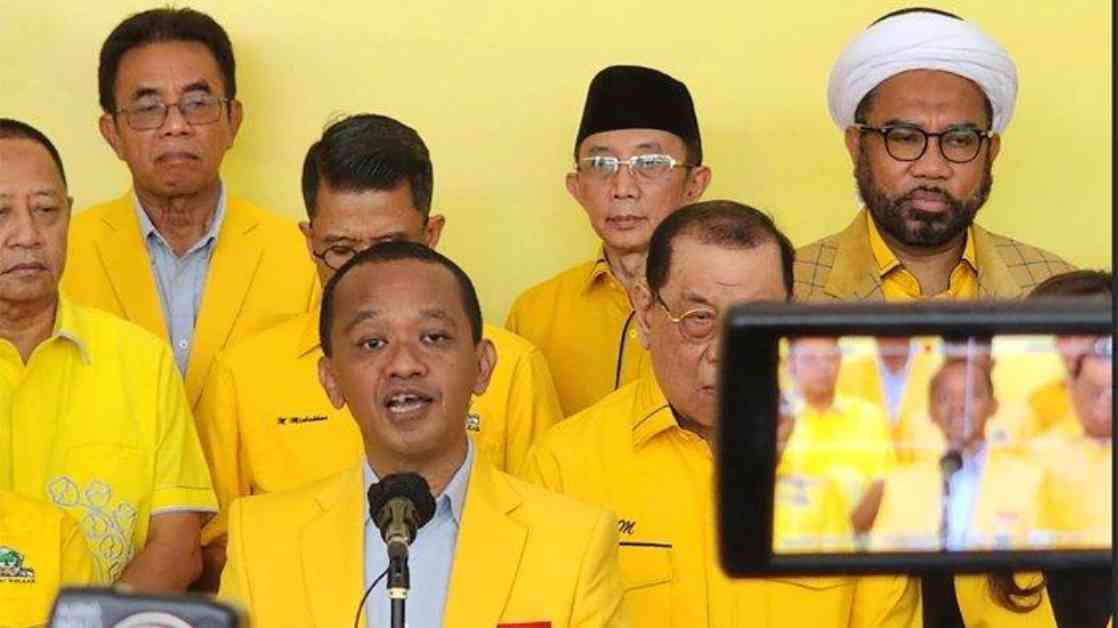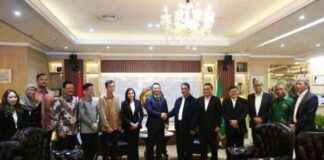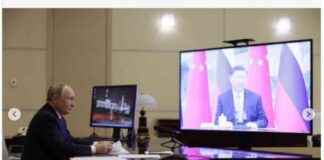Bahlil Lahadalia, the General Chairman of the Golkar Party, has stepped forward to defend President Joko Widodo (Jokowi) against accusations regarding the proposal for a three-term presidency. During an event reflecting on the end of 2024 and the outlook for 2025 at the Golkar Party Headquarters in Slipi, West Jakarta, Bahlil revealed that he was the first to suggest postponing the 2024 Presidential Election and extending President Jokowi’s term to three periods.
“I want to make it clear. Before I became the Chairman of Golkar, the first idea to postpone the presidential election was proposed by the Minister of Investment, which is me, and I have spoken about it multiple times,” Bahlil stated emphatically.
He emphasized that President Jokowi never expressed a desire to extend his presidential term to three periods nor instructed other party chairmen to support the idea. Bahlil firmly stated, “That idea never came from the President. At that time, President Jokowi ordered it to anyone.”
Furthermore, Bahlil disclosed that he put forth the proposal while responding to a survey conducted by the Executive Director of Political Indicator, Burhanuddin Muhtadi. The suggestion arose during a time when the impact of the ongoing COVID-19 pandemic was still prevalent and affecting economic growth.
Bahlil admitted to meeting with several businesspeople to devise a scheme and explore the option of postponing the presidential election. He shared, “So, it seems like I was a bit know-it-all. The first time I spoke about it was when I became the respondent in the survey conducted by Mr. Burhanudun Muhtadi (Director of Political Indicator Indonesia).”
In response to those who continue to accuse Jokowi of pushing for a three-term presidency, Bahlil urged them to speak based on facts. He cautioned against twisting the narrative and emphasized the importance of clean leadership for the nation.
The Secretary General of the Indonesian Democratic Party of Struggle (PDIP), Hasto Kristiyanto, previously raised concerns about an individual who had been expelled from the party and harbored ambitions for power spanning three periods. However, Hasto did not provide specific details about this individual.
In a video statement received by journalists, Hasto highlighted the need to uphold the constitution and democracy in the face of potential threats posed by individuals seeking extended terms of power.
Overall, Bahlil’s remarks shed light on the complexities surrounding the debate over a three-term presidency and the importance of factual accuracy in political discourse. His transparency regarding the origins of the proposal offers insight into the internal dynamics of Indonesian politics.
Now, let’s delve deeper into the key points discussed by Bahlil and Hasto to gain a comprehensive understanding of the unfolding situation.
Bahlil’s Defense of Jokowi
Bahlil Lahadalia’s assertion that he was the first to propose the postponement of the 2024 Presidential Election and the extension of President Jokowi’s term to three periods has sparked a significant debate within political circles. By clarifying the origins of the idea and emphasizing President Jokowi’s lack of involvement in advocating for a three-term presidency, Bahlil aims to set the record straight and dispel any misconceptions surrounding the issue.
Hasto’s Concerns
Hasto Kristiyanto’s reference to an expelled party member with ambitions for an extended term of power underscores the potential risks associated with individuals seeking to circumvent constitutional norms for personal gain. His call for upholding democratic principles and constitutional integrity serves as a reminder of the importance of transparent and accountable governance in safeguarding Indonesia’s democratic institutions.
Implications for Indonesian Politics
The contrasting perspectives presented by Bahlil Lahadalia and Hasto Kristiyanto highlight the complexities of power dynamics and political maneuvering in Indonesia. As the debate over a potential three-term presidency continues to unfold, it remains essential for stakeholders to engage in constructive dialogue based on factual information and respect for democratic principles. By examining the underlying motivations and implications of these contrasting viewpoints, we can gain a deeper understanding of the challenges and opportunities facing Indonesian politics in the years ahead.














